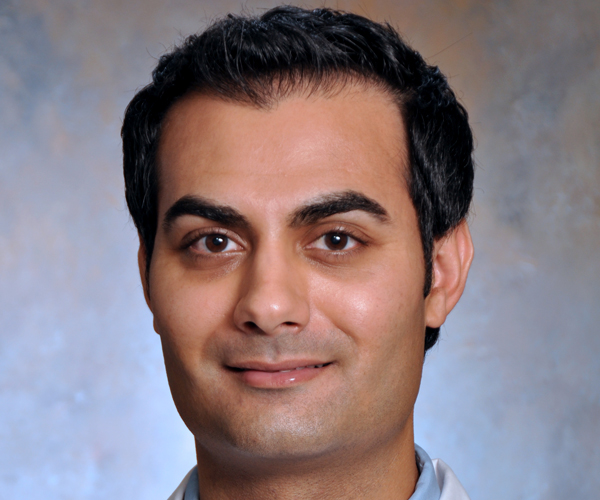
Ludwig Chicago’s Sean Pitroda led two studies published in late November describing the potential use of aneuploidy—an abnormal numbers of chromosomes in cells—as a marker for likely response to immunotherapy and, separately, to identify patients with metastatic non-small cell lung cancer who might benefit from combined immunotherapy and radiotherapy. Tumors that have a high mutational burden (TMB) respond well to immune checkpoint blockade (ICB) therapy, but those with extensive aneuploidy in their cells tend to be poorly infiltrated by immune cells, suggesting they’re less likely to respond to such treatments. The study reported in Nature Genetics examined whether aneuploidy scores of tumors could also be used, like TMB, to help predict which patients are most likely to respond to ICB. Sean and his colleagues analyzed data from more than 1600 patients with various types of cancer and found that high aneuploidy is indeed associated with worse survival after ICB. They also showed that its measurement complements that of TMB as a predictor of ICB response. This finding could aid the stratification of patients for immunotherapy. In the second study, Sean and his colleagues scrutinized how immunotherapy and radiotherapy (RT) interact in patients with lung cancer. The notion that RT can stimulate anti-tumor immune responses that can then be boosted by immunotherapy has been supported by animal studies. But the combination has largely proved ineffective in human trials. Sean and his team analyzed two cohorts of patients with advanced lung cancer who received ICB alone or either concurrent or sequential RT and ICB. They reported in Nature Cancer that local tumor irradiation alone does not stimulate anti-tumor immune responses in lung cancer patients; in fact, it has the opposite effect, and the subsequent addition of immunotherapy only helps because it reverses the apparent radiation-induced suppression of the immune response. They also discovered, however, that in patients whose tumors have a high level of aneuploidy, simultaneous administration of both RT and ICB was more effective at eliminating tumor cells and resulted in improved survival compared to sequential administration of the dual therapy. The effect was not observed in less aneuploid tumors. This finding supports the hypothesis that radiation and immunotherapy can interact positively—but only for a specific subset of patients.
Tumor aneuploidy predicts survival following immuno-therapy across multiple cancers
Nature Genetics, 2022 November 28
Highly aneuploid non-small cell lung cancer shows enhanced responsiveness to concurrent radiation and immune checkpoint blockade
Nature Cancer, 2022 November 28